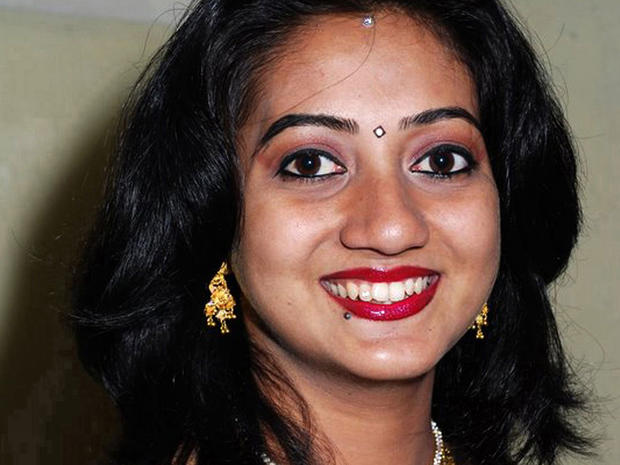Widower of woman denied abortion rejects Irish probe of her death
DUBLIN The widower of an Indian woman who died in an Irish hospital after being refused an abortion has rejected the terms of a government-ordered investigation into what went wrong.
Praveen Halappanavar and his lawyer said Tuesday that the planned inquiry was unlikely to reach truthful conclusions because it would be private, have no witnesses testify under oath, and allows senior doctors at the Galway hospital where his wife died to serve as investigators.
Halappanavar told The Irish Times he wanted "a fully independent inquiry so that the truth will come out. It does bother me that there are people from Galway hospital on the inquiry."
His lawyer Gerard O'Donnell said his client would not testify to the probe or authorize it to view his wife's medical records, a potentially crippling blow to its work. O'Donnell said it was unacceptable that the government's Health Service Executive had appointed three University Hospital Galway doctors to the seven-member panel.
"He has no faith in the HSE. It's important to remember that he lost his wife whilst under the care of the HSE," O'Donnell said.
- Outrage grows after death of woman denied life-saving abortion
- Parents slam Irish abortion laws after woman dies
- Husband: Ireland hospital denied Savita Halappanavar life saving abortion because it is a "Catholic country"
The chairman of the fact-finding probe, Sir Sabaratnam Arulkumaran, said he hoped to have a face-to-face meeting with Halappanavar to persuade him to change his mind because his witness testimony on his wife's care would be central to identifying problems.
Arulkumaran, a native Sri Lankan who practices and teaches at St. George's Hospital in London, is one of the world's leading authorities on fetal monitoring and maternal health.
Savita Halappanavar died Oct. 28 from blood poisoning one week after being hospitalized suffering from severe pain. The 31-year-old dentist was quickly diagnosed with an imminent miscarriage, with her cervix already dilating and amniotic fluid leaking.
As her pain and illness increased, her husband said, they repeatedly requested an abortion of her 17-week-old fetus but doctors refused because it still had a heartbeat.
Praveen Halappanavar said one of the doctors insisted they couldn't remove a living fetus because Ireland "is a Catholic country." He said five hospital officials and a family friend witnessed this Oct. 24 comment at his wife's bedside.
After the fetus died Oct. 25, its remains were surgically removed, but Savita Halappanavar's health rapidly faded as internal infections spread and her internal organs gradually failed. A coroner determined she died from blood poisoning and e.coli bacteria potentially contracted at the hospital.
The case has highlighted Ireland's failure to legislate in line with a two-decade-old Supreme Court judgment that women should receive abortions in cases where the pregnancy places their life at risk. The court found this should be the only exception to Ireland's constitutional ban on abortion.
Halappanavar is the first person to speak out accusing Irish authorities of jeopardizing a pregnant patient's health because of the abortion ban. The government declines to provide statistics or any details on the provision of life-saving abortions in its hospitals.
Halappanavar said he doubted Ireland would have done anything public had he not spoken out. He noted that he received zero communication from the hospital and Health Services Executive during the two weeks following his wife's death, when he returned her body to India for a Hindu funeral and cremation.
"It is a pity because I thought Ireland would care more for someone so young who died. That let me down. ... Maybe Savita was born to change the laws here," he told The Irish Times.
The European Court of Human Rights two years ago ruled that Ireland was jeopardizing some pregnant women by not providing a clear law defining when life-saving abortions can be performed. Ireland has yet to reply substantively to that judgment.
Some doctors at Irish maternity hospitals over the past week have spoken out to say that lack of legal clarity leaves them fearful of performing abortions except in the most obviously life-threatening circumstances, because they could be targeted for protests, lawsuits or criminal prosecution.
The government insists it should not present any abortion legislation until after the Halappanavar investigation is completed in February. It plans to oppose an opposition bill being unveiled Tuesday night seeking the parliament's immediate approval of the 1992 Supreme Court judgment.
About 4,000 Irish women receive abortions annually in neighboring England, where the procedure has been legal since 1967.
